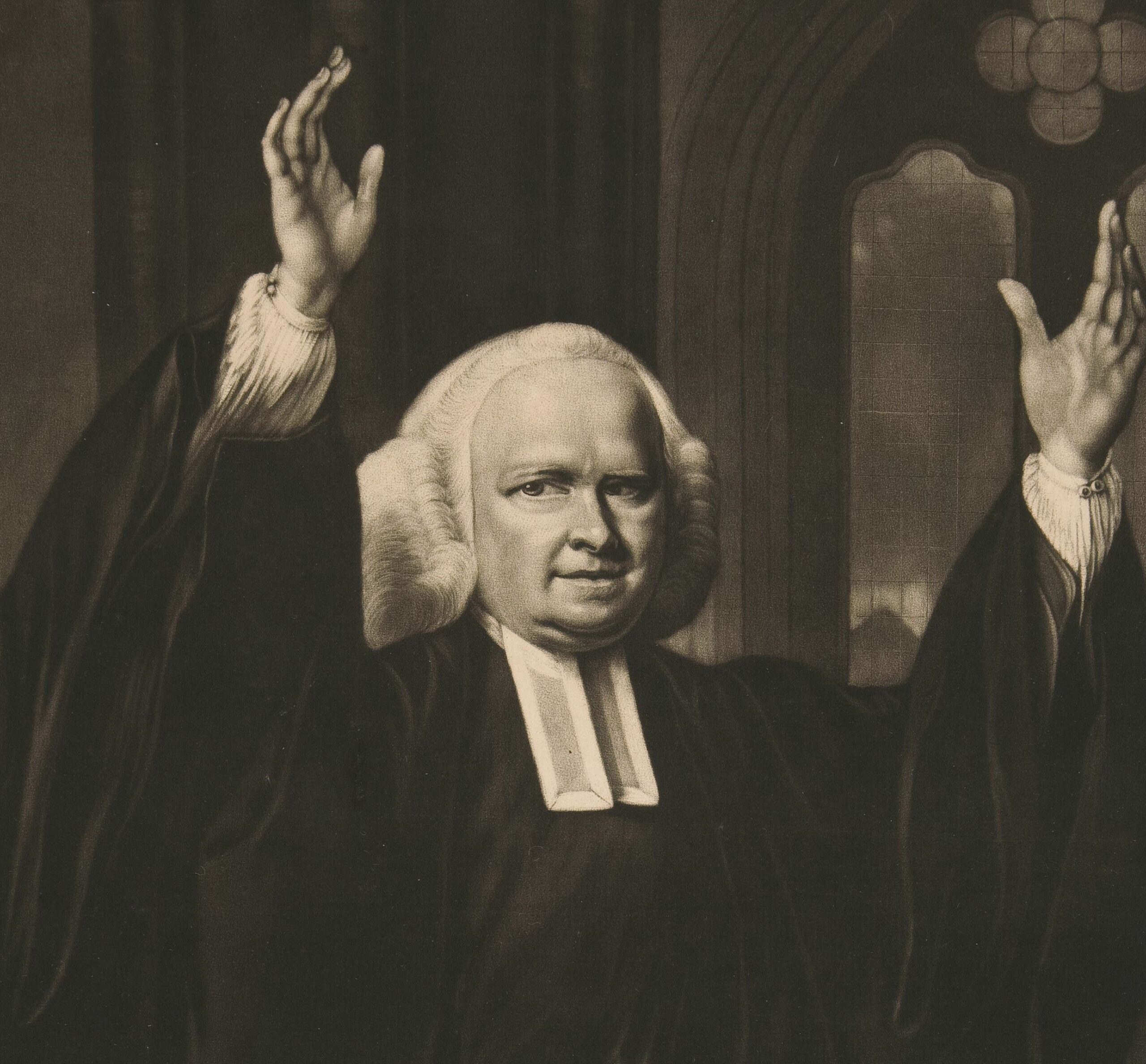The Simplicity of the Gospel:
George Whitefield
In 1735, at Oxford, a young man of twenty lay collapsed on his bed. Too weak to get up, he asked the college scout to tell his tutor that he was ill. The local surgeon-barber was sent to bleed him, but the scholar’s sickness continued. He had fallen ill through fasting and rigorous religious observances.
George Whitefield
1714 – 1770
“If any man thirst let him come to me and drink: he that believeth in me, out of his belly shall flow rivers of living waters.” (John 7:37-38) Whitefield preached what he had learned at that bedside, and all of England, it seemed, came to hear him.
The Simplicity of the Gospel: George Whitefield
In 1735, at Oxford, a young man of twenty lay collapsed on his bed. Too weak to get up, he asked the college scout to tell his tutor that he was ill. The local surgeon-barber was sent to bleed him, but the scholar’s sickness continued.
He had fallen ill through fasting and rigorous religious observances. He had given up his favorite foods (he stopped eating fruit), ceased to have his clothes mended, and prayed outside his college at night even when his hands turned blue from cold. He shirked his studies and abandoned laughter in his pursuit of holiness. He visited prisoners and read prayers with them. He strove ceaselessly to subdue his passions.
His name was George Whitefield. His college knew him as one of a holy crowd, a group of seriously religious men known as “Methodists” for their rigorous discipline. Yet he was tormented, feeling far from God and sensing that his sins were unforgiven.
But during his sickness, Whitefield picked up a book by Joseph Hall, one-time Bishop of Norwich. He read from it for several days. Where Whitefield was restless, Hall was calm and full of assurance.
One day, alone and feeling feverish, Whitefield looked for something to quench a raging thirst that had come upon him. He drank water, but still felt dry. He drank the last of the ale that had come with his lunch, without relief.
Then his thirst reminded him that Christ on the cross had said “I thirst” when his sufferings were almost over. Turning to Hall’s book, he read this about Jesus on the cross: “Thou, that not long since proclaimed in the Temple: `If any man thirst let him come to me and drink: he that believeth in me, out of his belly shall flow rivers of living waters’ now thyself thirstest.”

Whitefield read about Jesus on the cross:
“If any man thirst let him come to me and drink: he that believeth in me, out of his belly shall flow rivers of living waters.”
John 7:37-38
Physical thirst gave way to a consciousness of spiritual need, and Whitefield threw himself down on his bed in helplessness and cried out “I thirst! I thirst!” In that moment joy and relief came: he knew that God had taken away his thirst and removed his sin. George Whitefield was transformed.
In the next few years, Whitefield preached what he had learned at that bedside, and all of England, it seemed, came to hear him. John Wesley, former leader of the Oxford Holy club, joined him in proclaiming the gospel wherever space could be found, whether in churches or in the open fields. Whitefield eventually came to America, where he preached all along the Atlantic seaboard. He found his way to New Haven, and in 1741 preached on the Green and at Yale College. One of those affected was the Yalie David Brainerd who later took the message of salvation to the Delaware Indians. And Whitefield’s work didn’t end there. He made many trips to America through a lifetime of preaching, and became “a tremendous engine of transformation in all the colonies.”
Whitefield recognized the simplicity of God’s way and was transformed. Salvation was free: all God asked was that he admit his need. None of his pious acts had won him favor with God, but Christ’s death on the cross had made the salvation he sought free for the asking.
Salvation is still free and the way to God is open because of Jesus. Jesus promises that those who come to Him He will never cast out (John 6:37). Stop striving and respond to Christ’s call “If anyone is thirsty, let him come to me and drink.” (John 7:37)
Marena Fisher, Graduate ’92
© 1993 The Yale Standard Committee

Salvation is still free and the way to God is open because of Jesus. Jesus promises that those who come to Him He will never cast out.
John 6:37
